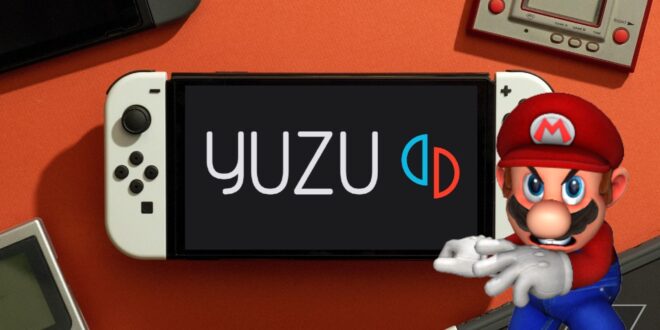Nintendo Initiates Legal Action Against Yuzu Emulator Developers
Nintendo is taking legal action against the developers behind Yuzu, a popular emulator for running Switch games. The legal filing points out that Yuzu unlawfully bypasses Nintendo’s software security measures and contributes to piracy. The lawsuit highlights a significant instance where over one million downloads of “The Legend of Zelda: Tears of the Kingdom” were reported prior to its official release, coinciding with a surge in Yuzu’s Patreon contributions.
NEW: Nintendo is suing the creators of popular Switch emulator Yuzu, saying their tech illegally circumvents Nintendo's software encryption and facilitates piracy.
Seeks damages for alleged violations and a shutdown of the emulator. pic.twitter.com/SGZVI6Cs0x— Stephen Totilo (@stephentotilo) February 27, 2024
The allegations by Nintendo claim that the Yuzu team procured Switch games from a compromised console, an act which violates the Digital Millennium Copyright Act (DMCA), and the creation of unauthorized copies of the games amounts to copyright infringement. Nintendo contends that Yuzu’s operational model is conducive to the proliferation of piracy and is demanding compensation for the alleged infringements in addition to seeking an injunction to terminate the emulator’s operation.
For those interested in reviewing the detailed allegations, the full lawsuit document is available [here].
Here’s a simplified explanation of how Yuzu and similar emulators function and might bypass software security features:
1. **Console Architecture Replication**: Emulators mimic the hardware and firmware of the console they are designed to emulate. This involves writing software that can interpret and execute the console’s machine code on a different architecture (e.g., x86 on a PC).
2. **Software Execution**: The emulator provides an environment for running the game binaries. This involves emulating the CPU, GPU, memory, and other hardware features of the original device so that the game believes it is running on actual hardware.
3. **Handling Encrypted Content**: Legitimate Nintendo Switch games are often encrypted to prevent unauthorized copying and distribution. Emulators like Yuzu must find a way to handle these encrypted files to run them. This does not necessarily mean they decrypt the files, but they may provide a mechanism to load decrypted game content that a user obtains by other means.
4. **Circumventing Security Measures**: Nintendo employs various security features to protect its intellectual property, including encryption, digital signatures, and authentication methods that verify the software and hardware. Emulators may circumvent these by replicating the responses expected from the genuine console’s operating system and hardware without performing the actual security checks.
5. **Game Compatibility**: Not all games may work with an emulator due to differences in how accurately the emulator replicates the console’s functionality, and because some games may use unique features or anti-tamper protections that are more difficult to emulate.
It’s important to note that while emulators themselves are not illegal, the act of bypassing copyright protection mechanisms can be, depending on jurisdiction. The DMCA, for example, has provisions against circumventing encryption and other digital protection methods. Furthermore, distributing, downloading, or otherwise obtaining games in a manner not authorized by the copyright holder remains illegal in many places.
In the case of Yuzu, Nintendo’s lawsuit, as described, appears to be based on allegations that Yuzu facilitates the circumvention of their security measures and copyright protections, which could contribute to piracy if it enables the playing of illegitimately obtained games.
For a more specific understanding of the technical and legal nuances of how Yuzu operates and the exact methods it uses, one would need to examine the software’s source code and the details of the legal arguments in the lawsuit.
 Retro-Replay.com Retro gaming reviews, news, emulation, geek stuff and more!
Retro-Replay.com Retro gaming reviews, news, emulation, geek stuff and more!




